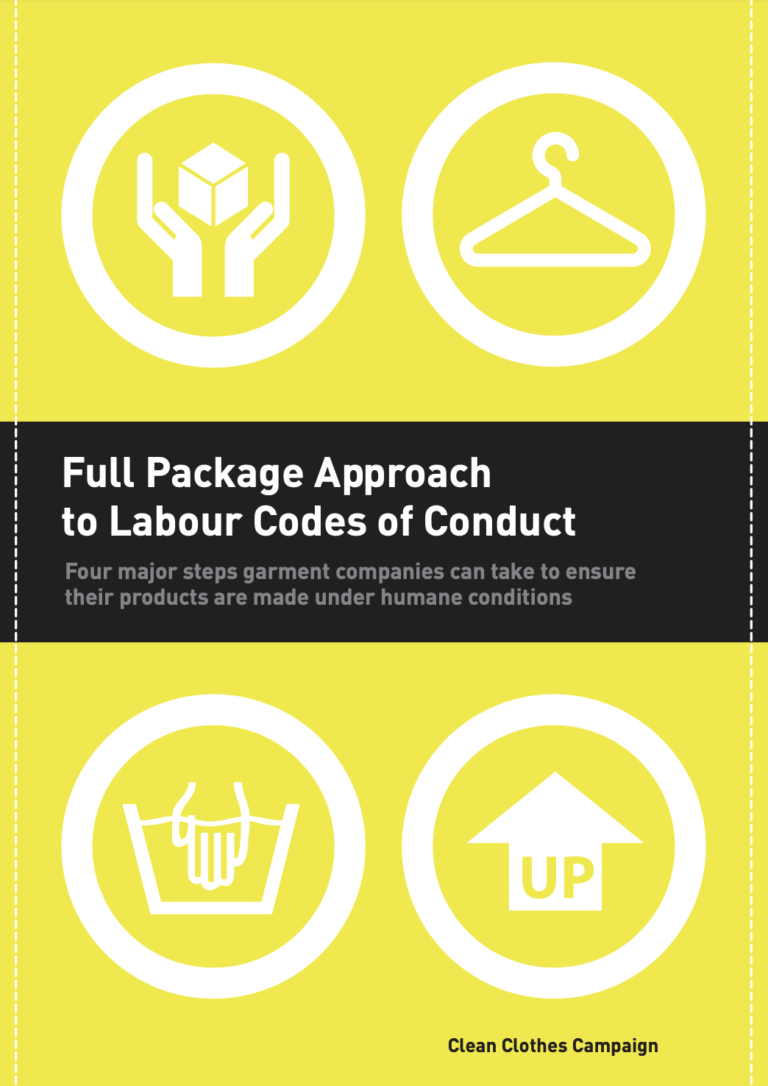Human Trafficking Assessment Tool for Educators
GuidanceA trafficking assessment tool for educators to identify and assist potential child victims of trafficking, including both labor and sex trafficking indicators.
In this guide the Clean Clothes Campaign offers guidelines on what companies can do to better assess, implement, and verify compliance with labour standards in their supply chains, and eliminate abuses where and when they arise. The exploitation and abuses of workers in international supply chains prevalent in many industries are a consequence of both the failure of governments to protect their citizens’ labour rights and the extent to which business organisations avoid their respective responsibilities toward their employees.
Sweatshop abuses are a systemic problem – there are no companies that are totally clean or totally dirty. Every company that sources globally faces problems that need to be addressed. While there are many steps companies can and should take (and to a certain extent have already taken) to improve workers rights, there are no quick-fix solutions. Instead, companies should adopt a comprehensive approach and engage in ongoing remediation efforts.

A trafficking assessment tool for educators to identify and assist potential child victims of trafficking, including both labor and sex trafficking indicators.
Whilst this guidance is focused on debt bondage within a Criminal Exploitation and County Lines Context, this is a method of control well documented in other forms of exploitation including international trafficking and sexual exploitation. Therefor...Read More
This report draws on the frontline experiences of Labour Exploitation Advisory Group members, including Ashiana Sheffield, Latin American Women's Rights Service and Bail for Immigration Detainees, to explore why and how victims of trafficking are be...Read More
This booklet presents an introduction to the ILO Indicators of Forced Labour. These indicators are intended to help “front-line” criminal law enforcement officials, labour inspectors, trade union officers, NGO workers and others to identify pers...Read More